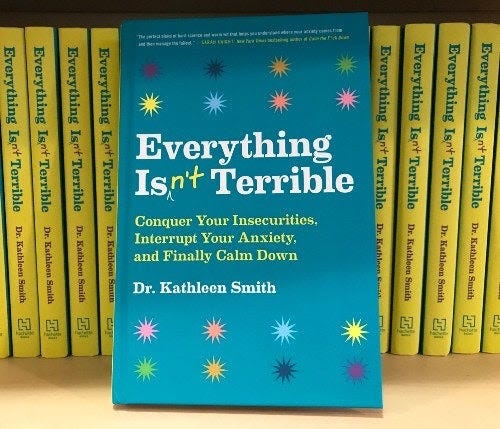The Quick and Convenient Ways We Abandon Ourselves
Lately I’ve been thinking about how we use quick social comparisons to temporarily boost our mood and functioning. Because in the absence of our own measures, we grasp for the most convenient ones.
I caught myself doing this just last night. Minutes after we had put our daughter to bed, I remembered a story I’d heard about another child’s bizarre sleep schedule. I started to tell husband this story, but then I stopped and thought.
What am I trying to accomplish here? I was trying to boost my mood by comparing my parenting choices to another’s.
Psychologists have studied how upward social comparison can motivate you to achieve more, and downward social comparison can help you feel better about yourself. This is how many people end up mommy-shaming, Internet bullying, and worshipping celebrities. But what gets lost when these strategies become our automatic way of managing our distress or uncertainty?
Convenient measures we use to evaluate ourselves:
· Anyone’s emotional reactions to you
· How much you are praised or criticized
· The current societal definitions of success
· Trending expert advice
· Your social media feed
· Your siblings’ performance
· Your friends’ achievements
· Your parents’ expectations
· Your boss’s mood
· Degree of acceptance or rejection by a group
These measures are like the fast food of self-esteem. They’re quick and convenient, but they don’t really nourish us, or help us grow up.
The less work you have done to define your own principles for parenting, work, friendship, dating, etc., the more likely you are to look at your friend group or scroll through your social media, and ask, How am I doing? You might feel overwhelmed or reassured. You’ll scramble to accomplish something you actually don’t value. Or you’ll subscribe to something you don’t really believe.
This is because it’s easier to buy another damn parenting book than sit down and think about how you’d like to parent your child. It’s easier to see an unreturned text as a sign of dating failure than it is to focus on the person you’re trying to be while dating.
Can you catch yourself mid-comparison, and direct back to your internal compass? Can you ask questions that are about defining yourself, instead of focusing on others? These are questions that focus on what you believe and who you’re trying to be in tough situations.
Here are some examples.
Focus on others: Can my kid do things other kids can do?
Focus on self: Am I relating to my child the way I’d like to?
Focus on others: Who should I be mad at on the Internet today?
Focus on self: Are there things I’d like to share or learn about today on the Internet?
Focus on others: How many of my friends are married already?
Focus on self: Is finding a partner important to me right now?
Focus on others: Does my boss praise me as much as she praises others?
Focus on self: How can I evaluate my work performance more objectively?
Focus on others: Does my spouse do more for me than I do for them?
Focus on self: Am I functioning the way I’d like to in this relationship?
To be human is to engage in social comparison. There’s nothing wrong with letting people inspire you to be better or do better. But the more anxious you are, the more quickly you may find that you’ve abandoned yourself to satisfy the group.
This week, consider thinking about how you use quick comparisons to manage distress. Do you share a story with a friend about another’s failure? Do you let someone’s accomplishment be proof of your own laziness? Do you let the Internet decide what’s worth your attention and energy?
Perhaps there are better ways to calm down than grabbing the closest definition of good. And other ways to gather the energy you need to achieve what’s important to you.
More from Kathleen
Want to read more of my writing? I’ve started writing a weekly essay for Medium’s Forge Magazine.
Want to support my free newsletter? Consider making a donation via Ko-Fi.
Buy my book Everything Isn't Terrible from Amazon, Barnes and Noble, Indiebound, or anywhere you buy books! Please consider supporting your local bookstore.
Get a free anxiety journal - Calming Down & Growing Up: A 30 Day Anxiety Journal includes thirty daily prompts to help you reflect on and respond to your anxious behaviors. To receive a copy, submit a copy of your receipt for my book at the Hachette page. Or you can email me.
Check out my website for past newsletters about anxiety and relationships.
Follow me on Twitter, Facebook, or Instagram, or email me if you have questions about my therapy practice in Washington, DC, virtual Bowen theory coaching, or having me speak to your group.
Want to learn more about Bowen theory? Visit the Bowen Center’s website to learn more about their conferences and training programs.



